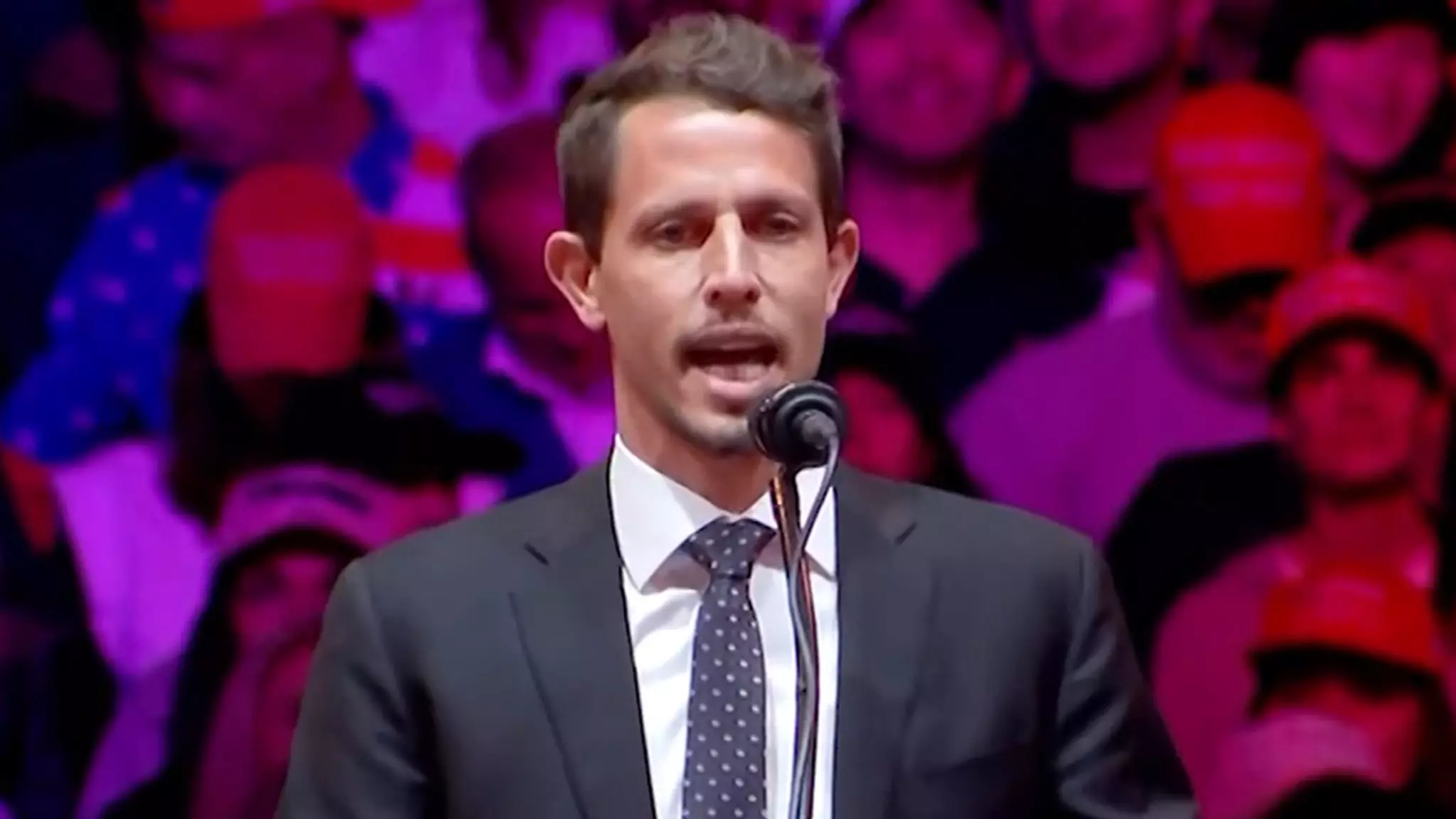The world of comedy often thrives on pushing boundaries, with comedians walking a fine line between humor and offense. Recently, comedian Tony Hinchcliffe found himself at the center of a controversy after performing at a Donald Trump rally in Madison Square Garden. Known for his edgy material, Hinchcliffe made a joke about Puerto Rico that instantly sparked outrage among public figures and audience members alike. This incident has reignited discussions about the responsibilities of comedians and the societal impact of their words, especially in an increasingly polarized political environment.
During his set before Trump’s entrance, Hinchcliffe’s humor ranged from light-hearted to incendiary. While many of his jokes received positive or mixed reactions, one line about Puerto Rico elicited immediate discomfort from the crowd. Hinchcliffe quipped about a “floating island of garbage in the ocean,” explicitly naming Puerto Rico. This statement not only drew a collective gasp but also indicated to Hinchcliffe that he had crossed a line with his audience—an acknowledgment that, in the realm of comedy, can often signal the gravity of the moment.
Reactions from Political Figures and the Public
As expected in the modern age of social media, public figures quickly took to their platforms to weigh in on Hinchcliffe’s remarks. Notably, Tim Walz, the Vice President’s candidate, expressed discontent during a Twitch stream with Alexandria Ocasio-Cortez. Both highlighted the fact that Puerto Ricans are U.S. citizens who contribute significantly to society, noting their status as taxpayers and military personnel. Walz’s condemnation of Hinchcliffe’s joke raised an essential point: humor at the expense of marginalized communities can perpetuate harmful stereotypes and undermine efforts for equality.
In response, Hinchcliffe attempted to mitigate the backlash by asserting that his comedy routinely targets various groups, not exclusively Puerto Ricans. This defense has opened a broader dialogue about what constitutes acceptable humor and whether intent can truly excuse insensitivity. The complexity of humor, especially when it involves marginalized communities, demands that comedians reflect on their material’s impact beyond the punchline.
The Role of Comedy in Society
This incident highlights a crucial dilemma facing comedians today: where do we draw the line between free expression and social responsibility? Comedy has the power to challenge norms and provoke thought, but it can also reinforce damaging narratives. As Hinchcliffe navigates the backlash, the question remains whether the industry as a whole will push for greater accountability in comedic discourse.
The reactions from various celebrities, including notable Puerto Rican figures, point to a significant cultural sensitivity that comedians must now consider when crafting their material. The landscape of comedy is evolving, and with it, the expectations of audience engagement, representation, and respect. Hinchcliffe’s joke may have been intended as a provocative piece of humor, but it serves as a reminder that, in the quest for laughter, the implications of one’s words can resonate far beyond the stage.

